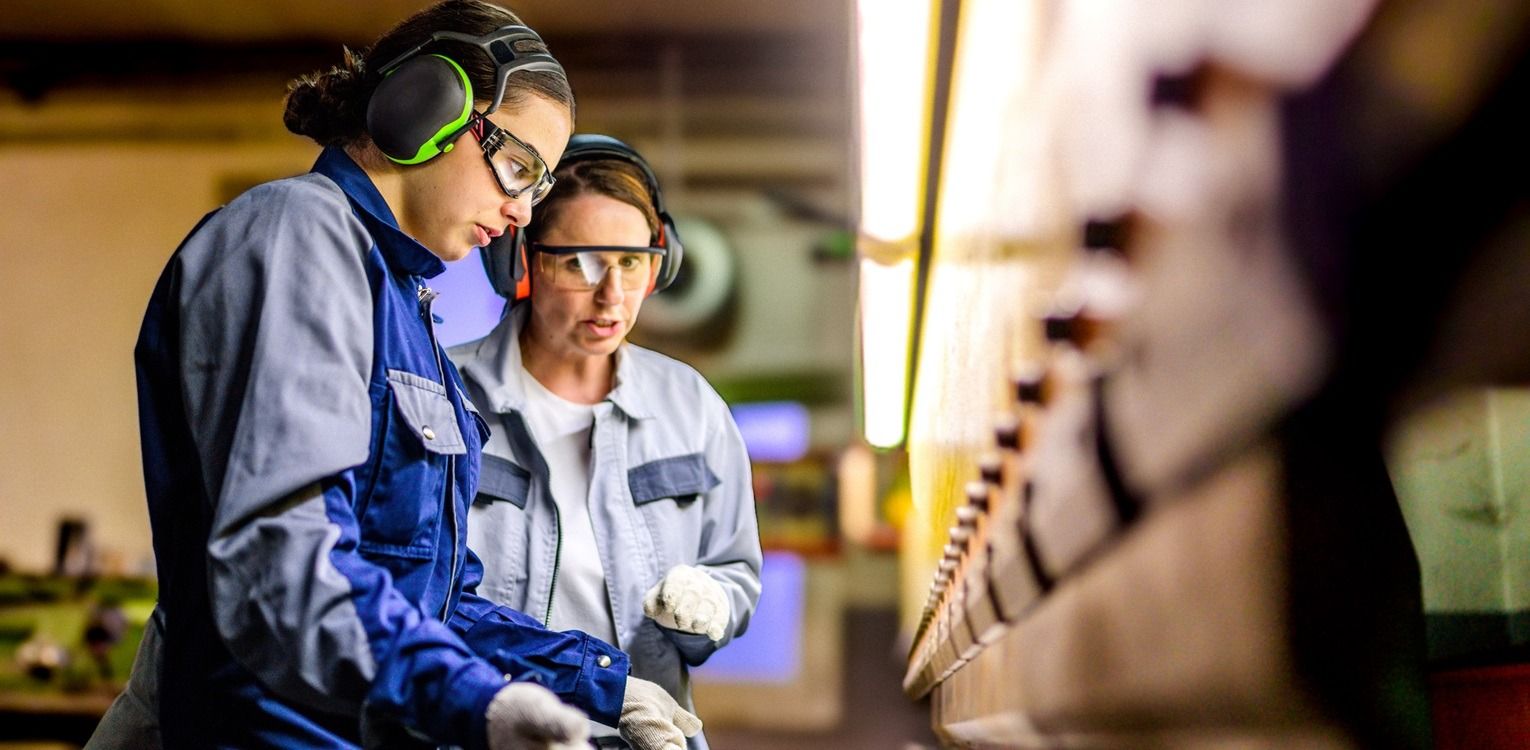Manufacturing Engineers are essential to every stage of modern production, from initial design to full-scale manufacture. They bridge the gap between engineering design and operations, ensuring that products are made efficiently, safely, and to the highest quality standards.
As a Manufacturing Engineer, your day-to-day work could involve analysing production processes, designing new tooling or fixtures, implementing lean principles, and working closely with production teams to solve technical issues. Depending on the sector, you may also be involved in automation projects, sustainability initiatives, or digital transformation efforts using advanced manufacturing technologies.
Demand for skilled Manufacturing Engineers continues to grow, driven by increased investment in UK industry, new product development, and the shift toward cleaner, more efficient manufacturing methods.
Explore Manufacturing Engineer Jobs by Sector
Manufacturing Engineer roles exist in almost every area of UK industry, with each sector offering its own challenges and rewards. Here are some of the most common areas employing Manufacturing Engineers:
Automotive and Transport
From electric vehicles to rail systems, Manufacturing Engineers in this sector focus on improving production lines, developing lightweight components, and ensuring high safety and quality standards. Many employers offer structured career paths with opportunities to progress into senior engineering or production management roles.
Aerospace and Defence
Aerospace Manufacturing Engineers work on precision components, advanced materials, and highly regulated production environments. These roles often involve working to strict tolerances, performing process validation, and collaborating with design and quality engineers to maintain airworthiness and safety compliance.
Electronics and Technology
Manufacturing Engineers in electronics oversee the production of circuit boards, sensors, and other high-tech products. This sector demands an eye for detail, familiarity with automated assembly equipment, and experience with cleanroom or controlled manufacturing environments.
Medical Devices and Pharmaceuticals
Precision, traceability, and regulatory compliance are at the heart of this sector. Manufacturing Engineers ensure that products meet strict healthcare standards, implementing process improvements that support patient safety and product reliability.
General and Heavy Manufacturing
From metal fabrication to industrial machinery, general manufacturing offers opportunities for engineers with mechanical, electrical, or process engineering backgrounds. Roles often involve continuous improvement, equipment maintenance planning, and workflow optimisation across complex production systems.
Types of Manufacturing Engineer Contracts
Manufacturing Engineer jobs are available in a variety of formats, allowing professionals to choose between stability, flexibility, and project-based work.
Permanent Manufacturing Engineer Jobs
Permanent roles offer long-term security, consistent hours, and opportunities for professional development. Employers may provide benefits such as private healthcare, pension schemes, and funded training towards chartered status. These positions are ideal for engineers looking to build a long-term career within a single organisation or sector.
Contract and Interim Manufacturing Engineer Jobs
Contract roles suit engineers who prefer variety or project-based work. These positions are often available for specific improvement projects, new product introductions, or factory relocations. Contract engineers can command competitive day rates and gain exposure to different industries and technologies.
Graduate and Entry-Level Manufacturing Engineer Roles
Many employers offer graduate programmes or junior-level positions for recent engineering graduates. These roles provide hands-on training and mentorship across different departments, helping new engineers gain practical experience in design, production, and quality.
Skills and Requirements for Manufacturing Engineer Jobs
To become a successful Manufacturing Engineer, you’ll need a blend of technical expertise, analytical thinking, and communication skills. Most roles require a degree or equivalent qualification in mechanical, manufacturing, or industrial engineering, though some employers accept candidates with strong experience and relevant vocational training.
Key skills and attributes include:
- Strong understanding of manufacturing processes, materials, and production equipment
- Proficiency in CAD software and manufacturing simulation tools
- Knowledge of lean manufacturing, Six Sigma, or continuous improvement methodologies
- Ability to analyse production data and identify efficiency gains
- Excellent problem-solving and troubleshooting skills
- Strong teamwork and communication across engineering, quality, and operations teams
- Attention to detail and commitment to product quality and safety
Additional experience with automation, robotics, or CNC systems can be particularly valuable. Many employers also look for engineers who understand sustainability principles or digital manufacturing technologies such as Industry 4.0 and additive manufacturing.
Manufacturing Engineer Jobs FAQ
What Does a Manufacturing Engineer Do?
A Manufacturing Engineer is responsible for designing, implementing, and improving manufacturing processes to ensure products are produced efficiently and to specification. The role may involve developing new production methods, improving existing lines, troubleshooting technical issues, and collaborating with teams across design, quality, and operations.
Do I Need a Degree to Become a Manufacturing Engineer?
Most employers require a relevant engineering degree, though candidates with significant hands-on experience in production or process improvement may also be considered. Apprenticeships and vocational qualifications can provide a pathway into engineering roles.
How Much Do Manufacturing Engineers Earn?
Salaries typically range from £35,000 to £55,000 per year, depending on experience, sector, and location. Senior or specialist engineers in industries such as aerospace or pharmaceuticals can earn upwards of £60,000, with additional benefits or bonuses available.
Can I Progress from a Manufacturing Engineer Role?
Yes. Many Manufacturing Engineers move into roles such as Senior Manufacturing Engineer, Production Manager, or Continuous Improvement Manager. With experience and professional registration, progression to senior technical or leadership positions such as Engineering Manager or Operations Director is also common.



